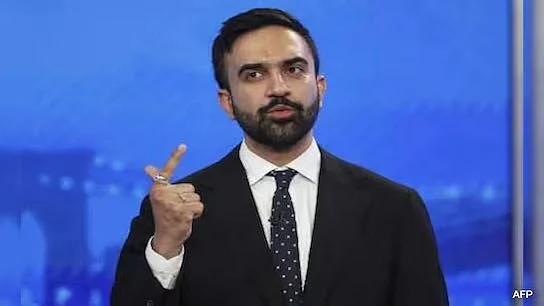World
Zohran Mamdani’s rent pledge resonates as New York's new mayor faces affordability test
His victory underscores a growing demand for housing reform as Americans grapple with rising rents

Zohran Mamdani’s rise from a state lawmaker in Queens to Mayor of New York City marks a seismic political shift and a moment of renewed hope for millions of tenants struggling to keep up with surging rents. The 34-year-old democratic socialist, who will take office in January as the city’s first Muslim mayor, built his winning campaign on a bold promise: to make New York affordable again.
At the heart of his platform was a pledge to freeze rents for apartments that fall under the city’s rent-stabilisation framework, a proposal that, for many New Yorkers, felt like a lifeline. With median monthly rents now at $3,491, swallowing around 55 per cent of the average household income, housing affordability has become the defining issue of urban life in the US’s largest city.
Mamdani’s promise offered immediate relief to tenants anxious about being priced out of their homes, capturing both their frustration and their aspirations.
“For many renters, this wasn’t just about politics, it was about survival,” said Tara Raghuveer, director of the Tenant Union Federation. “People are tired of being told the market will fix itself. They want stability, and they want to know the city is on their side.”
Yet economists caution that rent freezes alone won’t solve the underlying problem. Colin Allen, executive director of the American Property Owners Alliance, argues that without expanding supply, affordability will remain elusive.
“Developers face years of red tape and unpredictable costs,” he said. “If we don’t make it easier to build, rent control just delays the inevitable squeeze.”
Mamdani’s supporters acknowledge that challenge but insist his election signals a deeper demand for structural change, not just in New York, but across the United States. Rising rents have become a national crisis, with cities from Los Angeles to Boston reporting similar strains. For many, Mamdani’s win symbolises a broader progressive push to treat housing as a basic right rather than a commodity.
Published: undefined
The campaign that propelled him to City Hall was unlike any in recent memory. With nearly 100,000 volunteers and a message rooted in empathy, Mamdani drew record early voter turnout in a non-presidential election year. His accessible, social media-driven approach galvanised young and first-time voters, while his emphasis on rent, childcare, and public transport connected across class lines.
“This victory has given New Yorkers something they haven’t had for years — hope,” said Usamah Andrabi, communications director at Justice Democrats. “In an era of economic anxiety and political fatigue, Mamdani’s campaign reminded people that politics can still change lives.”
But translating that hope into policy will be the true test. Once Mamdani moves into Gracie Mansion in January, he will inherit a city marked by inequality, bureaucratic inertia, and competing interests. Delivering on promises of rent freezes and free childcare will require delicate coordination between city agencies, landlords, and state lawmakers.
Still, for many New Yorkers, his election itself feels like a turning point. After years of scandal, stagnation, and deepening divides under outgoing mayor Eric Adams, Mamdani’s victory represents a rare moment of optimism.
As one Brooklyn resident put it after the results were announced, “For the first time in a long time, someone’s talking about people like us, the ones who just want to afford to stay here.”
Whether Mamdani’s rent reform becomes a model for other cities or runs into the hard limits of urban economics remains to be seen. But one thing is clear: New York’s new mayor has tapped into a national sentiment, a growing belief that the right to a home should not depend on the size of one’s paycheck.
With Agency Inputs
Published: undefined
Follow us on: Facebook, Twitter, Google News, Instagram
Join our official telegram channel (@nationalherald) and stay updated with the latest headlines
Published: undefined